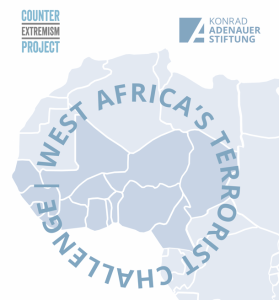Executive Summary
This short paper explores how Jamaat Nusrat Al-Islam wal-Muslimin (JNIM), the predominant coalition of al-Qaeda (AQ) affiliates in the region, is structured and financed and how its component parts relate to one another. The paper will outline how the various groups constituting JNIM train and operate jointly and the extent of their use of trafficking routes and overlap with regional organized crime. It addresses the extent to which the spillover of JNIM activity from Mali and Burkina Faso into the Atlantic/Gulf of Guinea littoral states represents a threat to their stability. It also addresses the impact of political instability in Mali, Burkina Faso, and elsewhere on counterterrorism (CT) activity and the impact on terrorism of external state and non-state assistance.
The paper seeks to diagnose the challenges posed by JNIM considering its local and regional circumstances on the ground and to provide operationally relevant recommendations both for actions within the region itself and through the use of international resources. The recommendations seek to integrate CT with measures aimed at preventing and countering extremism, conflict resolution, and development goals. They also highlight that the needs vary between different countries in the region. For example, measures applied to Mali cannot easily be transferred to mitigate the challenges in Burkina Faso.
Today, there is a growing trend towards the communitization of jihad, the multiplication of increasingly local insurgencies, which should lead to a review of previous strategies. Therefore, the authors recommend locally based solutions, with the international community and the United Nations (UN) providing support rather than dictating the development of the various strategies and tactics. Kinetic CT operations will still be needed but they should not be the primary instrument. Sustainable improvement in the security environment can only be achieved if these are combined with addressing the underlying causes of extremism and promoting stabilization and development.
Mali’s international partners will need to deprioritize competition for influence and rediscover the unity of purpose that is still prevalent in the international community’s response to the global threat emanating from the Islamic State (ISIS) and AQ. Mali and Burkina Faso themselves, supported by their neighbors and other international partners, will need to raise their sights above Bamako and Ouagadougou and focus on extending good governance and rule of law to their outlying populations. The UN will be essential to coordinate international support for local efforts to defeat JNIM, so it should not reduce the footprint or ambitions of United Nations Multidimensional Integrated Stablization Mission in Mali (MINUSMA) and it should gear up to build resilience in the Gulf of Guinea littoral states.
Read the entire article as pdf.




